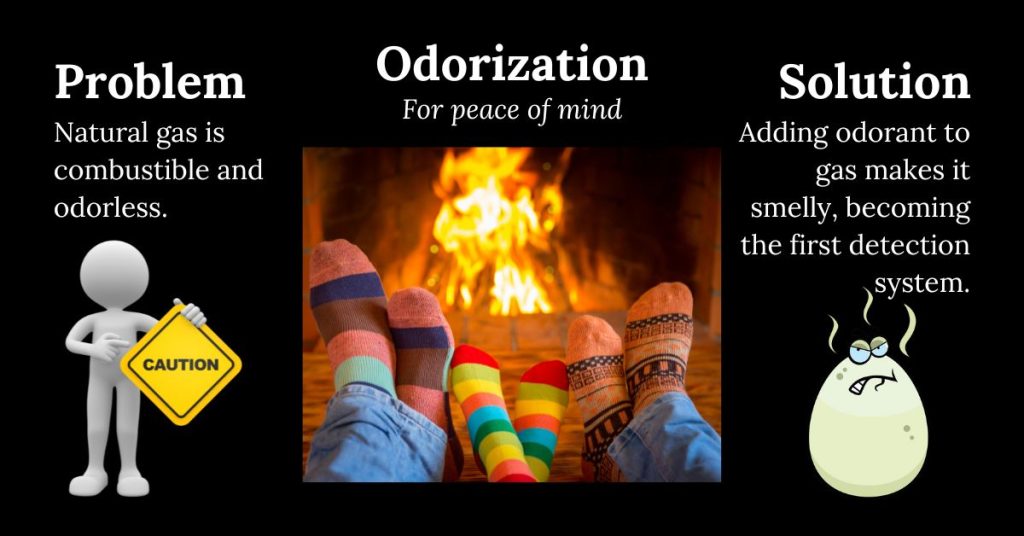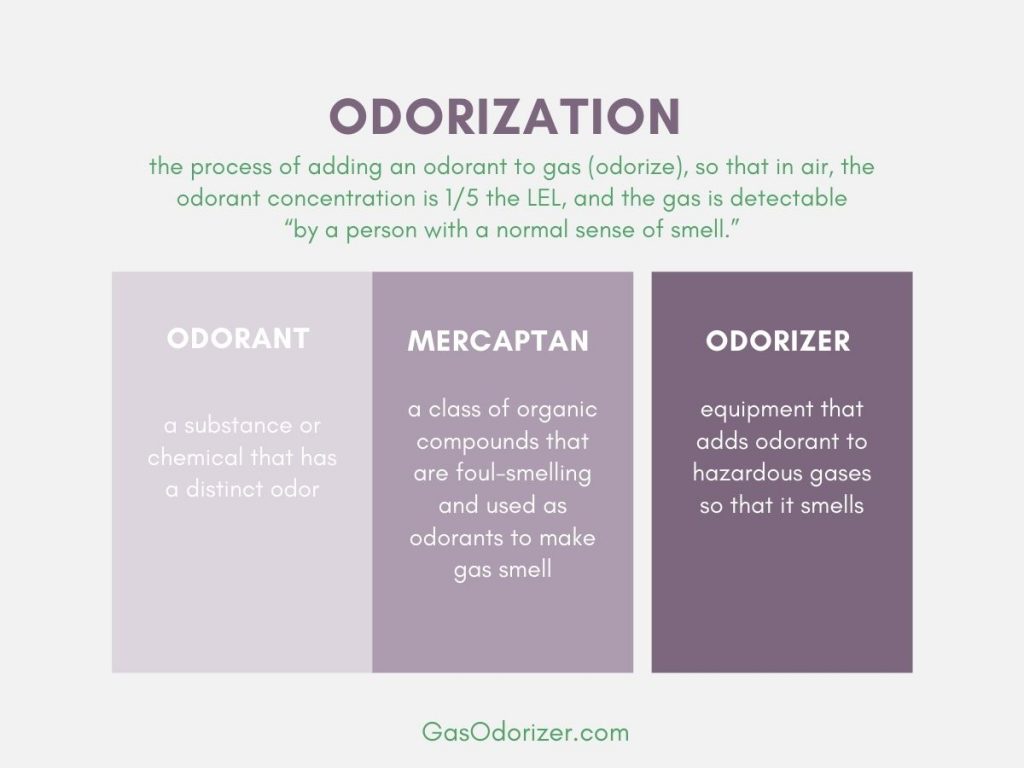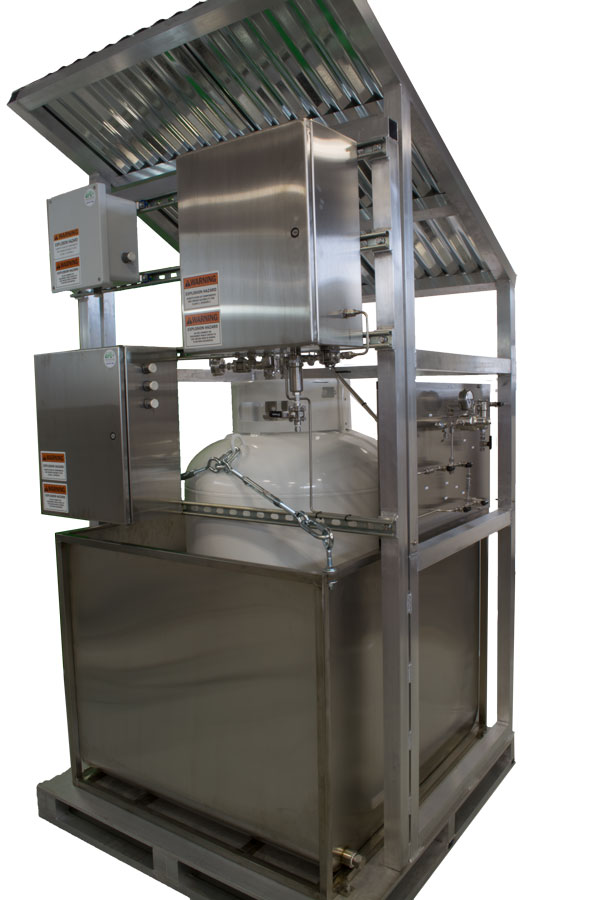What is natural gas odorization?
Natural gas odorization is not just a process; it’s a life-saving technique. Introducing an odorant into a gas stream makes the gas detectable through smell, a crucial safety measure.
Gas Odorization
While most people associate natural gas with a rotten egg smell, the actual cause of this pungent odor is the natural gas odorant. Contrary to what many believe, natural gas in its natural state is odorless. It is challenging to detect this extremely volatile hydrocarbon without an added odorant. Understanding this process can help you feel more secure in your home or workplace.
Why do we Odorize Gas?
The impetus behind odorizing natural gas goes back to one of the worst tragedies in U.S. history. In 1937, in London, Texas, a non-odorized natural gas leak led to a catastrophic explosion at a school, resulting in the tragic deaths of nearly 300 children and teachers. This devastating accident, caused by the inability to detect the gas due to its odorless nature, led to the adoption of standards to regulate the odorization of natural gas. Today, federal regulations mandate the odorization of natural gas to prevent similar disasters.
How does odorization work?
- Odorant Injection: The process of odorant injection involves introducing trace amounts of organic sulfur compounds into portions of gas transmission and distribution lines using an odorizer, which gives the gas a distinct smell. View our GPL Odorization Regulation Infographic for more insight.
- Detection Threshold: The regulations specify that distribution lines of any combustible gas must contain an odorant “so that at a concentration in air of one-fifth of the lower explosive limit, the gas is readily detectable by a person with a normal sense of smell.” In other words, when the gas reaches around 1% of the gas-to-air mixture, it must be detectable by smell.
- Safety Considerations: Rest assured, odorizing natural gas is designed with your safety in mind. Combusting the odorized gas does not create severe sulfur content or toxicity problems. The odorants used are considered nontoxic at the minuscule concentrations encountered by end-users, further ensuring your safety.
Natural gas odorization is not just a process; it’s your first defense against a potentially dangerous gas. The distinct smell alerts you to a potential gas leak, empowering you to take necessary precautions. If you ever smell gas, it’s crucial to follow safety protocols such as turning off the gas supply, opening windows for ventilation, and evacuating the area. Promptly seeking professional assistance is not just important; it’s your responsibility to ensure your safety and the safety of those around you!
Odorant Injection Systems Distributor
At Linc Energy Systems, we are a master distributor and authorized service provider for GPL Odorizers—the pioneers behind the first zero-emission odorant injection systems. Our expertise ensures that natural gas streams are accurately dosed with odorants throughout various production phases, transmission, and distribution.
Key Points:
- Zero-Emission Odorant Injection: GPL Odorizers’ innovative systems are designed to inject odorants into natural gas streams without any emissions. This commitment to environmental responsibility sets them apart. The systems use advanced technology to ensure precise dosing of odorants, maintaining safety and compliance with federal guidelines.
- Precise Instrumentation: The GPL Odorizers instrumentation ensures accurate dosing, maintaining safety and compliance with federal guidelines. We understand the critical role odorants play in making natural gas detectable.
- Types of Odorants: The odorants used in natural gas odorization belong to a group of organosulfur compounds, such as mercaptans. These compounds give natural gas its distinct smell, as mandated by federal safety regulations.
Choose Linc Energy Systems for reliable odorization solutions prioritizing safety, compliance, and environmental stewardship. Contact us today to learn more!
Smell Gas? Or not?
In my post, “Natural gas leak detection and what to do,” I discussed methods of detecting and isolating and what to do in the event of a gas leak. Our article, “What is odor fade?” discusses why you may not smell gas.






It’s really a nice and useful piece of information. I am happy that you simply shared this useful info with us. Please stay us up to date like this. Thanks for sharing.
Very informative article.
Very informative article.
I am a utility expert, but retired and appreciate your data.
I am a utility expert, but retired and appreciate your data.